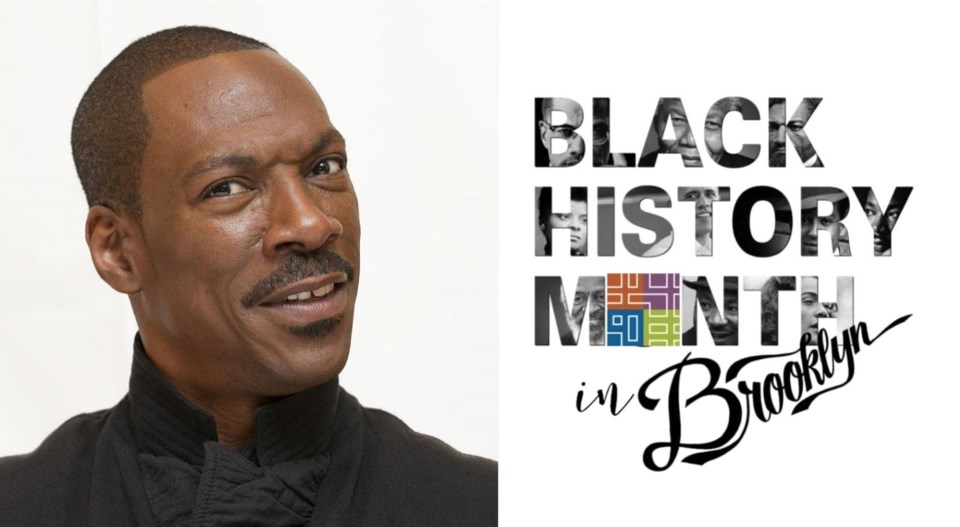Edward Regan Murphy was born April 3, 1961, in Bushwick to Lillian Lynch, a telephone operator, and Charles Edward Murphy, a transit police officer who was also an amateur comedian and actor. His brothers are Charlie Murphy and Vernon Lynch Jr. Their father died in 1969 when Murphy was eight.
When Murphy's single mother became ill, the eight-year-old Murphy and his older brother Charlie (who passed away in 2017) lived in foster care for one year. In interviews, Murphy has said that his time in foster care was influential in developing his sense of humor.
Murphy had aspirations of being in show business since he was a child. A bright kid growing up in the streets of New York, Murphy spent a great deal of time on impressions and comedy stand-up routines rather than academics.
His sense of humor and wit made him a stand out amongst his classmates at Roosevelt Junior-Senior High School in Long Island. By the time he was fifteen, Murphy worked as a stand-up comic, wooing audiences with his dead-on impressions of celebrities and outlooks on life.
In the early 1980s, at the age of 19, Murphy was offered a contract for the Not-Ready-For-Prime-Time Players of Saturday Night Live, where Murphy exercised his comedic abilities in impersonating African American figures and originating some of the show's most memorable characters: Velvet Jones, Mr. Robinson, and a disgruntled and angry Gumby, among others.
Meanwhile, Murphy started to grab headlines for his comedy specials, including Delirious (1983) and Eddie Murphy: Raw (1987), the latter which was released in theaters and grossed $50 million.
Murphy made his feature film debut in 48 Hrs. in 1982, alongside Nick Nolte. The comedic and antagonistic chemistry between the actors, alongside Murphy's believable performance as a streetwise convict aiding a bitter, aging cop, won over critics and audiences. The next year, Murphy went two for two, with another hit, pairing him with John Landis, who later became a frequent collaborator with Murphy in Coming to America (1988) and Beverly Hills Cop III (1994).
Beverly Hills Cop (1984) was the film that made Murphy a box-office superstar and most notably made him a celebrity worldwide, and it remains one of the all-time biggest domestic blockbusters in motion-picture history. Murphy's performance as a young Detroit cop in pursuit of his friend's murderers earned him a third consecutive Golden Globe nomination. Axel Foley became one of Murphy's signature characters. On top of his game, Murphy was unfazed by his success, that is until his box office appeal and choices in scripts resulted into a spotty mix of hits and misses into the late 1980s and early 1990s.
Films like The Golden Child (1986) and Beverly Hills Cop II (1987) were critically panned but were still massive draws at the box office. In 1989, Murphy, coming off another hit, Coming to America (1988), found failure with his directorial debut, Harlem Nights (1989).
Another 48 Hrs. (1990) and his turn as a hopeless romantic in Boomerang (1992) did little to resuscitate his career. However, his remake of Jerry Lewis's The Nutty Professor (1996) brought Murphy's drawing power back into fruition. From there, Murphy rebounded with occasional hits and misses but has long proven himself as a skilled comedic actor with laudable range pertaining to characterizations and mannerisms.
As Murphy had matured throughout the years, learning many lessons about the Hollywood game in the process, he settled down with more family-oriented humor with Doctor Dolittle (1998), Mulan (1998), Bowfinger (1999), and the animated smash Shrek (2001), in a supporting role that showcased Murphy's comedic personality and charm.
Throughout the 2000s, he further starred in the hits The Haunted Mansion (2003), Shrek 2 (2004), Dreamgirls (2006), Norbit (2007), Shrek the Third (2007) and Shrek Forever After (2010). In 2019, he starred in Dolemite Is My Name, Coming 2 America (2022), You People (2023) and Beverly Hills Cop: Axel F (2024).
He continues to star in many movies, including comedies, dramas and family films.
Murphy was ranked #10 on Comedy Central's list of the 100 Greatest Stand-ups of All Time.
In films, Murphy has received Golden Globe Award nominations for his performances in 48 Hrs., the Beverly Hills Cop series, Trading Places and The Nutty Professor. In 2007, he won the Golden Globe for Best Supporting Actor and received a nomination for the Academy Award for Best Supporting Actor for his portrayal of soul singer James "Thunder" Early in Dreamgirls.
In 2015, Eddie Murphy received the Mark Twain Prize for American Humor which "recognizes people who have had an impact on American society in ways similar to the distinguished 19th-century novelist and essayist best known as Mark Twain," according to the John F. KennedyCenter for the Performing Arts, which presents the award.
Eddie Murphy, we acknowledge your enormous talents, and we honor your contributions.
*Sources: IMdb, biography.com, wikipedia




